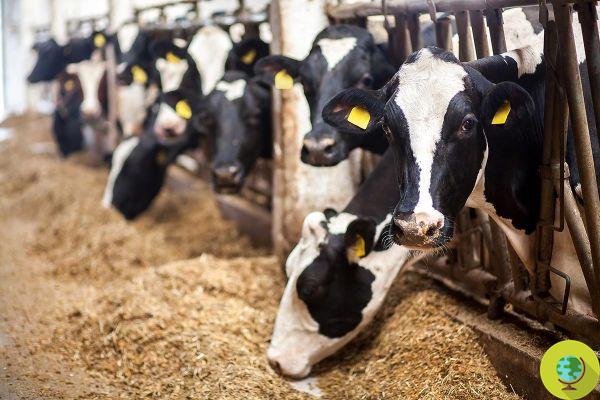
Ceta, the now well-known Canada-EU free trade agreement, continues to have questionable implications. These include the presence of a legislative hole that allows Canadian farmers to use animal meal on farms (which is prohibited in the EU). But what do we risk if the meat ends up on our tables?
He is about to end up run over, his mother saves him
Il Ceta, the now well-known Canada-EU free trade agreement, continues to have questionable implications. These include the presence of a legislative hole that allows Canadian farmers to use animal meal in farms (which is prohibited in the EU). But what do we risk if the meat ends up on our tables?
The French newspaper Le Monde focused attention on this aspect of CETA, arguing that:
“By sifting through veterinary regulations in Canada and Europe with the help of experts, a conclusion is emerging: the government was wrong to swear that the ban on animal meal was absolute. A hole in the legislation actually allows Canadian farmers to feed their oxen with flours made from what remains of their slaughtered animal companions (blood, hair, fat) ”.
A horrible thing (we talk about intra-species cannibalism of cattle) as well as illegal in Europe since, years ago, there was an epidemic of bovine spongiform encephalopathy, the so-called "mad cow" that you will all remember.
The point is basically this: despite the ban on feeding ruminants with animal meal, Canadian legislation allows the use of certain proteins such as blood meal and animal gelatin.
The risk, as the French newspaper reports, is that the meat produced in Canada then arrives on European soil without the consumer being informed of what he is putting on the table.
As surprising as it may seem, not all health standards applicable on European soil are automatically valid for imported products. Import rules are generally defined separately with specific clauses that are sometimes less stringent, so as not to contravene the fundamental principles of the World Trade Organization.
From France they tend to reassure about the safety of the feeds allowed in Canada. Government officials have in fact declared that the flours used in this country are safe for health as they eliminate the spinal cord of the animals and are treated at high temperatures. This would avoid any risk of transmission of diseases such as bovine spongiform encephalopathy.
The fact remains that we do not like these foods at all, just as we can no longer tolerate the existence of intensive farming!
Read also:
- CETA could eliminate the mandatory wheat origin label
- Ceta: multinationals will be able to sue a state, ok from the EU
- Ceta does not violate European law: the first victory of the trade agreement between the EU and Canada


























